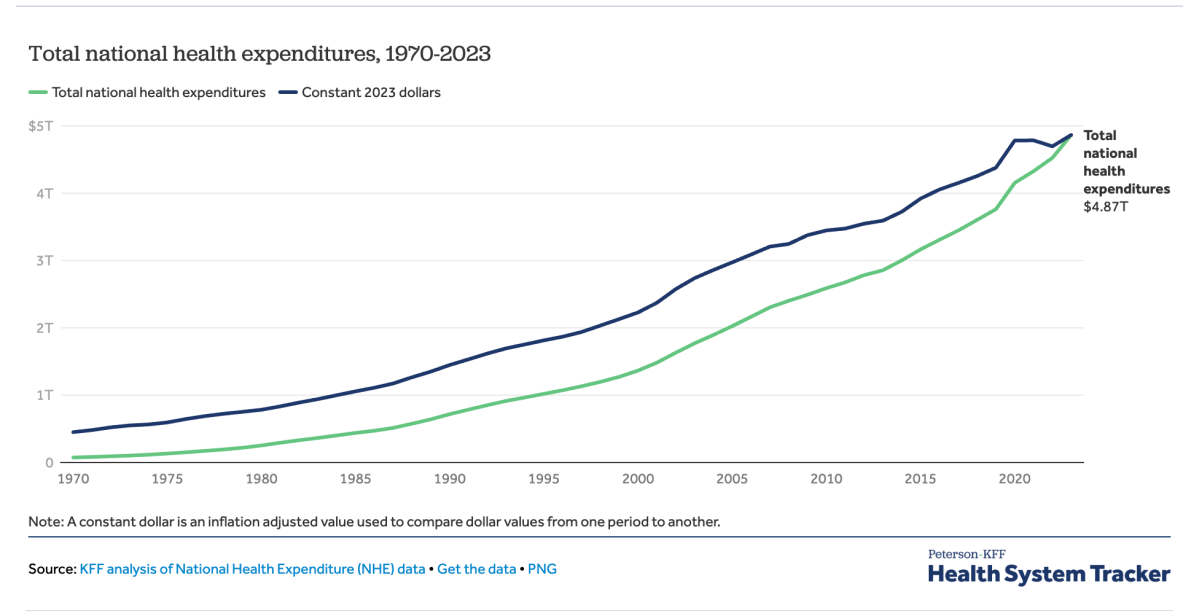Dear Reader (particularly you treasure-hunting enthusiasts),
I really wanted to do a big eggheady dive on the concept of “identity” because it’s been burbling around in my head for a week. But I don’t have it in me. So instead, I’m gonna just do some fairly rudimentary punditry on some stuff that’s been bothering me. If you want to read my Wednesday G-File on Tucker Carlson and our populism problem(s) instead, we’ve taken it out from behind the paywall.
The deal with the ‘peace deal.’
Assuming the hostages being held by Hamas in Gaza are, in fact, released in a few days, Donald Trump deserves a great deal of the credit. I think it’s pointless to try to deny this or squeeze it into some anti-Trump framing.
I do think, as David French and others have noted, that the diplomatic opportunity Trump seized upon would have been impossible without Israel’s military successes and, arguably, one military failure. The successes are obvious: The “12-day war” with Iran, the figurative, and in some cases literal, gelding of Hezbollah, and the difficult and at times ugly pasting of Hamas, etc.
The arguable failure was the strike last month on Doha. It apparently didn’t take out its intended targets. But it also galvanized the White House and regional powers to force an end to the war. I don’t think that’s the result Bibi Netanyahu wanted. But it’s a big part of how we got to this moment.
The simple fact is that new facts on the ground created a diplomatic opportunity that Trump seized. This isn’t a backhanded way of denying Trump credit, it’s simply an obvious observation.
Indeed, it’s how the world often works. Victory in war opens doors for political and diplomatic gains (or losses). Harry Truman and the other architects of NATO deserve all sorts of credit for creating the post-World War II international order and the Western alliance. But it’s kinda obvious that it would have been impossible without first, you know, winning World War II. I think the Founding Fathers were the bomb, but the Constitutional Convention wouldn’t have happened without first sending the Redcoats packing.
This peace plan ain’t NATO or the American Founding. But if it’s even moderately successful—heck, if it just results in the return of the remaining living hostages—then it’s a good thing. I’m very skeptical about claims of “everlasting peace,” never mind Hamas disarming or replacing the terrorists with technocratic Palestinians to be named later. But one thing at a time.
Insurrection!
I have just a couple of points to make about the Trump administration’s determination to send National Guard troops to cities to fight crime/protect ICE or federal buildings/put down insurrectionist domestic terrorist groups.
First of all, I find the whole thing maddening.
Whether you think any of it is justified, you should at least acknowledge it’s not normal. And that’s part of the point of Trump’s ever-shifting rhetoric and tactics. He’s trying to normalize it. The Los Angeles adventure was the opening bid. The D.C. schtick—and it was mostly a kind of political schtick—upped the ante. I think the president has the authority to send ICE agents into cities. And, if there’s a plausible threat of violence against or obstruction of them, he has a plausible case for sending the National Guard to protect them. But I also strongly suspect he pretty clearly wants the protests against ICE to get unruly precisely so he can have a pretext for sending in the troops. I am far more confident that Stephen Miller craves some helter-skelter. If true, that’s grotesque.
What’s also grotesque is the hypocritical cravenness of Republicans and conservatives who spent much of the last couple decades growing tumescent over the 10th Amendment and states’ rights yawning at, or openly cheering, the constant threats to state sovereignty. I applaud Oklahoma Gov. Kevin Stitt—a conservative Republican and head of the National Governors Association—for dissenting from this farce. “We believe in the federalist system — that’s states’ rights,” he said, adding, “Oklahomans would lose their mind if Pritzker in Illinois sent troops down to Oklahoma during the Biden administration.” It wasn’t long ago that the slightest rhetorical threat to states’ rights—or even losing an election—yielded outrage and even demagogic nonsense about secession. Remember Texit?
But it’s also worth noting that most of what Trump has done so far has amounted to exactly that: rhetorical threats. He talks a lot about “insurrection” and, very creepily, about “enemies within,” but hasn’t invoked the Insurrection Act. I think he eventually will, but I suspect the White House is waiting for facts on the ground and the broader normalization of using troops on American soil to ripen.
And the normalization is happening, at least among Republicans. The notion that the president should send troops to fight street crime is treated as a defensible idea, if not a necessity, on Fox News and social media. Forget that it’s against the law and forget that crime is not remotely as big a problem as Trump claims (though it’s a much worse problem than many Democrats claim). It’s just ridiculous on the merits. If Chicago gangs shooting each other justifies sending in American troops—whose “calling card” is “lethality” under “Secretary of War” (eyeroll) Pete Hegseth—then I guess Chester Arthur should have sent the army into Tombstone after the shootout at the O.K. Corral.
The government shutdown.
I have no idea when it will end. I think the Democrats are … (thump) hsdf947r747hfbhhvvvvvvvvvv.
Sorry, my head hit the keyboard as I dozed off writing about the shutdown. The whole topic makes me feel like the Tick when he’s forced to watch a PowerPoint presentation—“slideshow boring … losing … consciousness.”
So I’ll do something veteran pundits are always leery of doing: make a prediction. First, let me snort some crushed nicotine lozenges and offer some context.
I don’t think the Democrats’ strategy to fight over Obamacare subsidies is as stupid as a lot of folks seem to think it is. People—including me—have noted that it’s a bit of a replay of Ted Cruz’s strategy in 2013. Cruz led the GOP effort to shut down the government over repealing Obamacare. He lost and hurt himself, a little, politically. But the GOP gained seats in the midterms running against Obamacare—because Obamacare was unpopular. That’s the strategy Democrats are doing in reverse. The expiration of COVID-era subsidies for insurance premiums will be unpopular, because premiums will go up as a result. Democrats are betting that the shutdown will help with their messaging for next year’s midterms, because voters will forget the hassles of the shutdown—like they did in the 2014 midterms—but they’ll remember that the Democrats fought for the popular position.
I’m not saying it’s a brilliant strategy. I’m just saying it’s not necessarily a stupid one.
But here’s the problem: This strategy assumes that Republicans won’t cave on the issue later. And that’s my prediction: I think the Republicans will “win” the shutdown fight eventually, and then Trump will support extending the subsidies. Heck, he might come out in favor of extending the subsidies to end the shutdown—as he’s already hinted.
As I discussed last week, one of the things driving the Democrats’ “identity crisis” is their inability to deal with the fact that a Republican president won’t play to type. Trump isn’t a small-government guy. He has no problem spending gobs of money and racking up debt. A majority of Trump supporters back extending the subsidies, which is why Marjorie Taylor Greene has already come out in favor of an extension.
Trump loves bailouts, subsidies, and protective tariffs—particularly if he thinks the beneficiaries will give him the credit for them. He’s already proposed a massive bailout for farmers hurt by his trade wars. He thinks using taxpayer dollars to buy chunks of businesses is great economics. It’s important to remember that tariffs are a kind of subsidy. Make foreign furniture, cars, steel, etc., more expensive, and you’re effectively subsidizing domestic manufacturers.
I have an endless supply of criticisms of this, but that’s not the point. On economics, Trump has simply moved the GOP to the left in much the same way Bill Clinton moved the Democrats to the right on welfare. And you may not be old enough to remember, but Clinton’s move rightward on welfare flummoxed Republicans in the 1990s. Democrats really don’t know how to argue against right-wing big-government populism.
My arkoudaphobic wife is mildly obsessed with stories about hikers with dogs that chase bears. Every now and then, we’ll read about someone hiking in the bush. They encounter a bear and the dogs chase the bear. The bear runs, for a while. Then the bear remembers: “Wait a second. I’m a bear.” The bear then turns around and starts charging the dogs. The dogs are like, “Oh, crap. It’s a bear!” and turn around and run back to their owner. The result? They lead the bear straight back to the hiker, who subsequently has their face eaten. Think of the scene in Galaxy Quest when Tim Allen charges the aliens and reveals that he’s dragging magnetic mines with him. The mines are the bear.
Is it fixed yet?
A friend of mine texted me the other day to say, “Only in Washington is ‘affordable care subsidy’ spoken with a straight face.” If you don’t get the joke, the whole point of affordable care is that it’s supposed to be affordable. If you need a subsidy in order to afford it, then it’s not affordable.
When Democrats were pushing Obamacare, we were told constantly that it would “fix” our “broken health care system.” Heck, I remember people saying it would fix our modestly lower life expectancy compared to Europe. “Americans tend to believe that we have the best health care system in the world,” Paul Krugman wrote in the New York Times. “But it isn’t true. We spend far more per person on health care … yet rank near the bottom among industrial countries in indicators from life expectancy to infant mortality.”
Well, 15 years later, we’re still near the bottom among industrial countries on life expectancy and infant mortality, and we still spend far more per person on health care.
Now I should be clear about something: I think all three of these metrics have flaws. The fairly minor shortcomings on life expectancy compared to Europe have very little to do with our health care system and a lot to do with things like diet, drugs, guns, and the fact we drive far more than other countries. Our infant mortality rate—which is definitely too high—is at least partly a product of how countries count stillbirths. As for per capita spending, some of it is just math. We’re a lot richer than most other countries in the Organization for Economic Cooperation and Development, so the amount we spend per person is going to be higher for all sorts of things. Yes, we still spend more even when adjusted for our comparative wealth, but Obamacare didn’t change that.
And that’s my point. I didn’t come up with those metrics; defenders of the law did. The law did some things that progressives have every reason to defend given their priorities. Coverage was expanded. Preexisting conditions got more coverage. But we keep spending more and more on health care.
I don’t want to rip off Scott Lincicome’s act, but look at this chart.

Obamacare passed in 2010. If you didn’t know that, could you have guessed that from the chart?
The biggest indictment of Obamacare doesn’t come from the right, but the left. How long after Obamacare passed did people like Sen. Bernie Sanders start pitching “Medicare for All”? (In fairness, Sanders has always wanted socialized medicine, but you get the point.)
Ding Trump and Republicans all you want for failing to follow through on their promise to “repeal and replace” Obamacare. But what is “Medicare for All” or a single payer system other than a repealing and replacing of Obamacare?
Which brings me back to those pesky Obamacare subsidies. They were passed during the pandemic explicitly as a temporary measure. But, as Milton Friedman famously observed, there’s nothing so permanent as a temporary government program.
Another economist, Robert Higgs, popularized the phrase “ratchet effect.” Government does “temporary” stuff to deal with a crisis—real or alleged—and it becomes the new normal. Friedman’s joke about temporary programs was inspired partly by the fact that as a young economist in the Treasury Department he helped come up with the idea of paycheck withholding as a temporary measure to raise revenues during World War II. It never went away.
Indeed, one of the reasons our health care system is a mess is because of another (sort of) temporary wartime measure. During the war, wages were temporarily frozen, so employers offered health care coverage as a competitive form of compensation. The Stabilization Act of 1942 effectively created the employer-sponsored health care insurance market. Prior to 1942, people paid for health care directly.
I’m not going to get into a wonkier discussion about health care reform. My only point here is that we keep doing this. We promise fixes and temporary relief from the problems the fixes create, and then we make the temporary fixes to the original fix permanent, which then leads to the need for more temporary fixes. And so on. It’s a massive give-a-mouse-a-cookie problem. Progressives pocket wins on sweeping changes they claim will permanently solve a problem and then immediately demand yet more sweeping changes. Republicans complain, then cave, and we tighten the ratchet again.
The Democrats think they can do it again, but if my prediction is right, the Republicans will beat them to the punch this time, because we now have two big-government parties.
Various & Sundry
Canine Update: I had to go to CNN before dawn this morning (where my tweeting ruffled some feathers). Pippa thought it was great because she got to sleep late without me dragging her out of bed (here’s four minutes of me negotiating with her the other day). But Zoë was pissed. Like an advance Secret Service team, she thinks it is vital she confirm it’s safe for me to leave the house in the morning. What if the hated mini-spaniels down the block or a trash panda are out there? She needs to aroo “Clear!” for me. Anyway, the girls are good. They love the fall weather, though Pippa does worry that crepuscular mean dogs will use the cover of early morning fog to attack). Zoë had some extra excitement because she found a rock puppy (aka a turtle). They even posed—with Clover—for a new Aroogalas album cover. Gracie is a little miffed about the colder weather, because she has to move more of her daytime napping indoors. Oh, since it’s Friday, here’s your obligatory appeasement video. And Pippa wanted me to tell you again, that she loves you.
The Dispawtch

Why I’m a Dispatch Member: Been a fan since the beginning. I’m a relatively new nonpartisan mayor of a growing southern city, and The Dispatch has proven to be one of the few balanced places left to get the news. I’ve always appreciated the writing of Jonah and David French, even if I don’t always agree on the opinion side. Mostly I would say I joined for the civility and sanity of it all—plus, I love dogs.
Personal Details: Just trying to be normal in an abnormal world.
Pet’s Breed: English Cocker Spaniel
Gotcha Story: My son shares his father’s love of animals but occasional lack of judgment, as evidenced by him buying Shrimp this summer with plans to take him back to college. He’s a junior and lives in a fraternity house. Now we are fostering Shrimp until graduation. He is very much at home with our two Boykin Spaniels, but might be picking up a few bad manners.
Pet’s Likes: Anything and everyone. No judgment at all—ridiculously friendly. Also loves to splash the water bowl for kicks.
Pet’s Dislikes: Puppy food. He’ll only eat adult dog food.
Pet’s Proudest Moment: Swimming for the first time. Now we can’t keep him out of the water.A Moment Someone (Wrongly) Accused Pet of Being Bad: His friendly nature has made more than one non-dog lover more confused than nervous. It’s a good thing he’s not the most intimidating-looking dog.
Do you have a quadruped you’d like to nominate for Dispawtcher of the Week and catapult to stardom? Let us know about your pet by clicking here. Reminder: You must be a Dispatch member to participate.

















